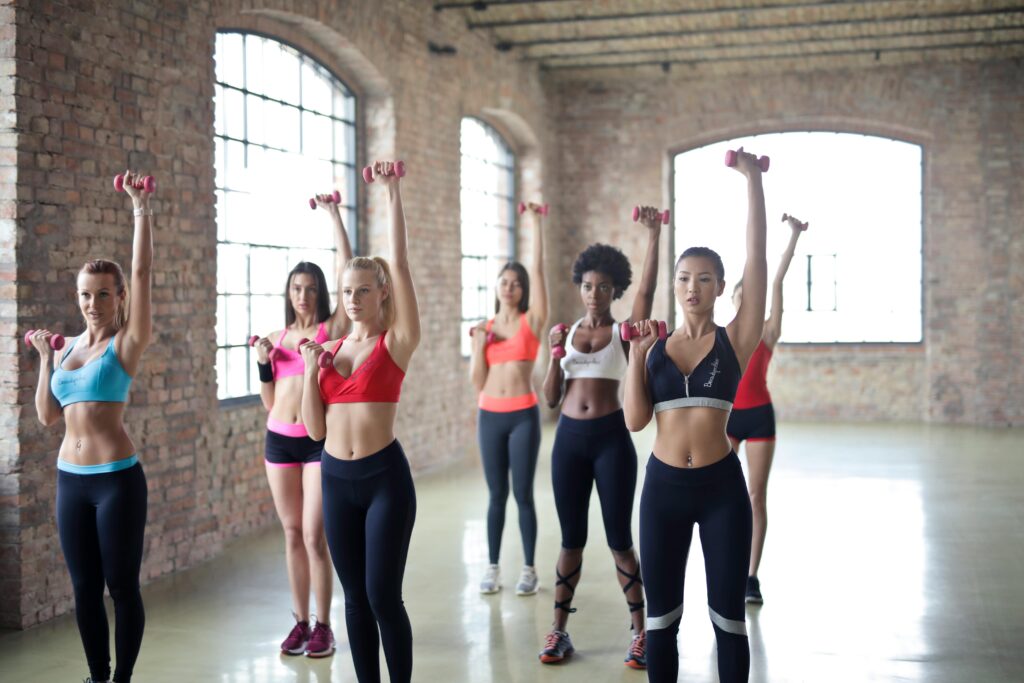In the journey towards achieving fitness goals, women often face unique challenges. Balancing work, family, and personal time can make it difficult to stay committed to a fitness regimen. However, one powerful tool that can significantly enhance motivation and success is the sense of community. Building support networks and accountability groups can transform the fitness experience, offering not just physical benefits, but emotional and social ones as well.
The Role of Community in Women’s Fitness
Community plays a crucial role in women’s fitness for several reasons:
- Motivation and Encouragement: When women join a fitness community, they receive motivation and encouragement from others who share similar goals. This collective spirit can help push through challenging times when individual willpower might falter.
- Accountability: Knowing that others are aware of your fitness goals creates a sense of responsibility. Accountability groups can provide the gentle nudge needed to stick with a fitness plan, even on the tough days.
- Shared Knowledge and Resources: Communities are a rich source of information. Members can share tips on diet, workout routines, and overcoming fitness plateaus. This shared knowledge can lead to more effective and enjoyable fitness experiences.
- Emotional Support: Fitness journeys can be emotionally taxing. A supportive community provides a safe space to share struggles, celebrate victories, and receive empathetic support.
- Social Connection: Building new friendships and connections can make fitness activities more enjoyable. The social aspect of community can turn workouts from a chore into a fun and engaging activity.
Building Effective Support Networks
Creating a supportive network requires intentionality and effort. Here are some strategies to build a robust support system:
- Join Local Fitness Groups: Many communities offer fitness groups specifically for women. Whether it’s a running club, a yoga class, or a CrossFit team, joining a local group can provide immediate access to a network of like-minded individuals.
- Online Communities: In the digital age, online communities offer an excellent platform for connecting with others. Social media groups, fitness apps, and online forums can connect women from all over the world, providing support and accountability irrespective of geographical boundaries.
- Start Your Own Group: If you can’t find a group that suits your needs, consider starting your own. Invite friends, family, or coworkers to join a fitness challenge. Create a WhatsApp group or use a fitness tracking app to share progress and motivate each other.
- Hire a Fitness Coach: Personal trainers or fitness coaches can act as both a resource and a motivator. They provide personalized advice and help set realistic goals, ensuring a structured and effective fitness journey.
The Impact of Accountability Groups
Accountability groups specifically focus on keeping members committed to their fitness goals. Here’s how they can make a difference:
- Setting Clear Goals: Accountability groups often start with setting clear, measurable goals. These can be short-term (e.g., weekly workout targets) or long-term (e.g., running a marathon). Clear goals provide direction and purpose.
- Regular Check-Ins: Regular check-ins, whether weekly or bi-weekly, help members stay on track. These check-ins can be through meetings, video calls, or even simple text messages. The idea is to review progress, discuss challenges, and adjust plans as needed.
- Celebrating Successes: Recognizing and celebrating small victories is essential. Accountability groups create an environment where every milestone is celebrated, fostering a positive and encouraging atmosphere.
- Constructive Feedback: Constructive feedback helps members improve. Whether it’s advice on improving form during exercises or tips on staying motivated, feedback from peers can be invaluable.
- Building Lifelong Habits: The structure and support provided by accountability groups can help in building lifelong healthy habits. Over time, members learn the discipline and resilience needed to maintain their fitness independently.
Real-Life Examples of Successful Women’s Fitness Communities
Many real-life examples demonstrate the power of community in women’s fitness:
- Moms Run This Town (MRTT): This national running club for moms offers a platform for women to connect, share running tips, and support each other. The local chapters organize group runs, races, and social events, fostering a strong sense of community.
- Black Girls RUN!: Founded to encourage African American women to prioritize their health, this community has grown into a nationwide movement. They offer local running groups, training programs, and a supportive online community.
- Sweat with Kayla: Fitness influencer Kayla Itsines has built a massive online community through her fitness app and social media platforms. Her followers, known as the “BBG Community,” share their fitness journeys, tips, and encouragement, creating a virtual support network.
Conclusion
The power of community in women’s fitness cannot be overstated. Support networks and accountability groups provide the motivation, knowledge, and emotional support needed to overcome challenges and achieve fitness goals. By connecting with others, women can transform their fitness journeys into empowering and enjoyable experiences. Whether through local fitness groups, online communities, or starting their own accountability circles, women can harness the strength of community to enhance their health and well-being.









